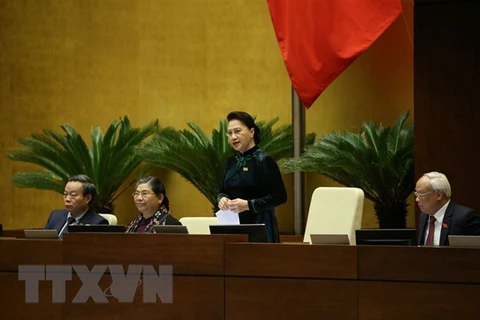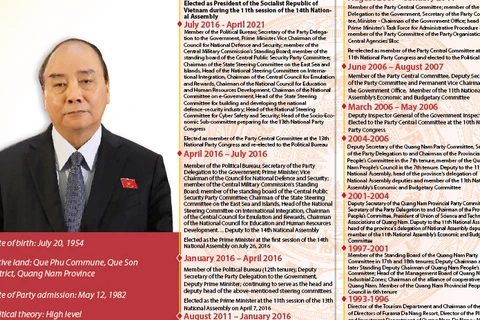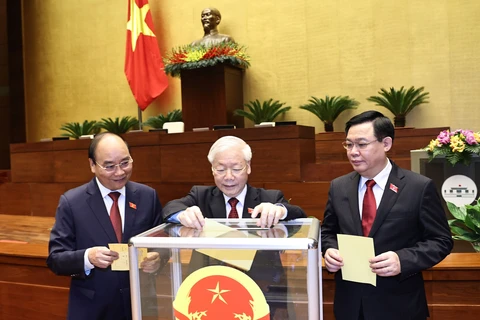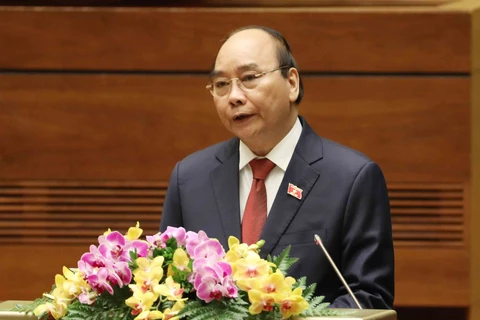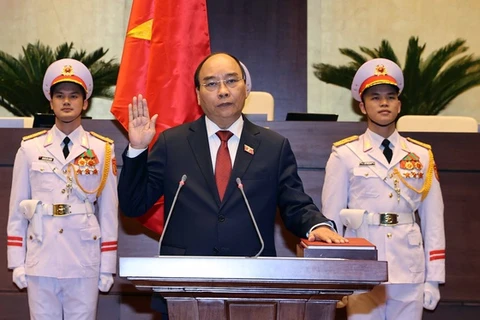 Prime Minister Pham Minh Chinh presents flowers to President Nguyen Xuan Phuc, who was Prime Minister in the 2016-2021 term. (Photo: VNA)
Prime Minister Pham Minh Chinh presents flowers to President Nguyen Xuan Phuc, who was Prime Minister in the 2016-2021 term. (Photo: VNA) In his article, the author Yang Razali Kassim – a senior fellow at the RSIS – said the new leadership marks a combination of experience and freshness, a suitable formula for Vietnam’s planned transition towards a socialist-oriented developed status by 2045.
He assumed that Party General Secretary Nguyen Phu Trong will continue to oversee the strengthening of the Party building work and the fight against corruption where his success has been proven. Meanwhile, President Nguyen Xuan Phuc will leverage on his experience as prime minister to expand and strengthen Vietnam’s relations with other countries.
According to the article, Prime Minister Pham Minh Chinh, whose decisiveness is seen as a quality needed for a head of the Government. He will have the unenviable task of steering the country towards the dual goal of rolling back and containing the pandemic while maintaining and promoting economic growth.
The author also talked about Vietnam's foreign policy under the new team, noting the likeliness of the strategy of “openness, multilateralisation and diversification”. International economic integration will continue with more free trade agreements (FTAs) being signed, thereby creating new impetus for the nation’s economic recovery.
He stated Vietnam’s diplomatic foray will continue to deepen following its chairmanship of ASEAN in 2020 while its entry into the UN Security Council as a non-permanent member for one year has raised its voice on the global stage.
By the end of the NA elections on April 8, the new Vietnamese core leadership will be ready to take over and will steer Vietnam towards a more prominent regional role, said the article./.
VNA
